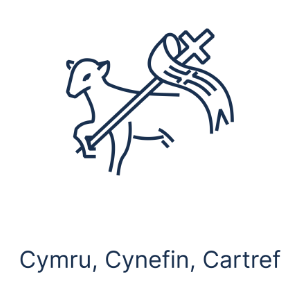History A level
This page is currently awaiting content
The WJEC AS and A level in History is an exciting and thought-provoking subject that prepares those pupils looking at further education and life in the work place.
AS and A level history encourages learners to:
- develop their interest in and enthusiasm for history
- acquire an understanding of the impact of events on the political, economic, religious, cultural and social landscape of the period they are studying
AS and A level in History is both distinctive and attractive, giving learners the opportunity to:
- study the history of Britain from 1770 to 1990 and Weimar and Nazi Germany 1919 to 1945
- study specific aspects of the past in breadth and in depth
- study change and continuity over a period of time both long term and short term
- study the nature and purpose of history as a discipline and how historians work and develop historiographical skills
How will I be assessed? (Assessment)
AS Unit 1: Period Study: Britain 1770 to 1880. Written examination: 1 hour 30 minutes (60 marks) 20% of the final A2 qualification
- 2 open ended essay questions with a focus on relevant historical concepts.
AS Unit 2: Depth Study: Weimar Germany c.1919 to 1933: Written examination: 1 hour 45 minutes (60 marks) 20% of the final A2 qualification
-2 source evaluation-based questions.
A2 Unit 3: Breadth Study: Britain 1890 to 1990; Written examination: 1 hour 45 minutes (60 marks) 20% of the final A2 qualification.
-2 essay based questions focusing on relevant historical concepts and based on historical themes within this topic.
A2 Unit 4: Depth Study continued Nazi Germany 1933 to 1945. Written examination: 1 hour 45 minutes (60 marks) 20% of qualification.
-1 source based question and 1 essay.
A2 Unit 5: Historical Interpretations non-examination assessment (coursework) : 3000-4000 words (60 marks) 20% of the final qualification.
This is a research based exercise looking at how and why historians have developed different interpretations of the same event – this is usually based around David Lloyd George and Liberal Welfare Reforms, but this is subject to change.
What kind of work will I do outside the classroom?
Additional reading and research, also includes watching appropriate videos and TV programmes.
What could I do at the end of my course? (Progressions)
This specification provides a suitable foundation for the study of history or a related area through a range of higher education courses, progression to the next level of vocational qualifications or employment. In addition, the specification provides a coherent, satisfying and worthwhile course of study for learners who do not progress to further study in this subject.
Entry Requirements: GCSE English C, Maths C + portfolio of other qualifications, History preferred.



